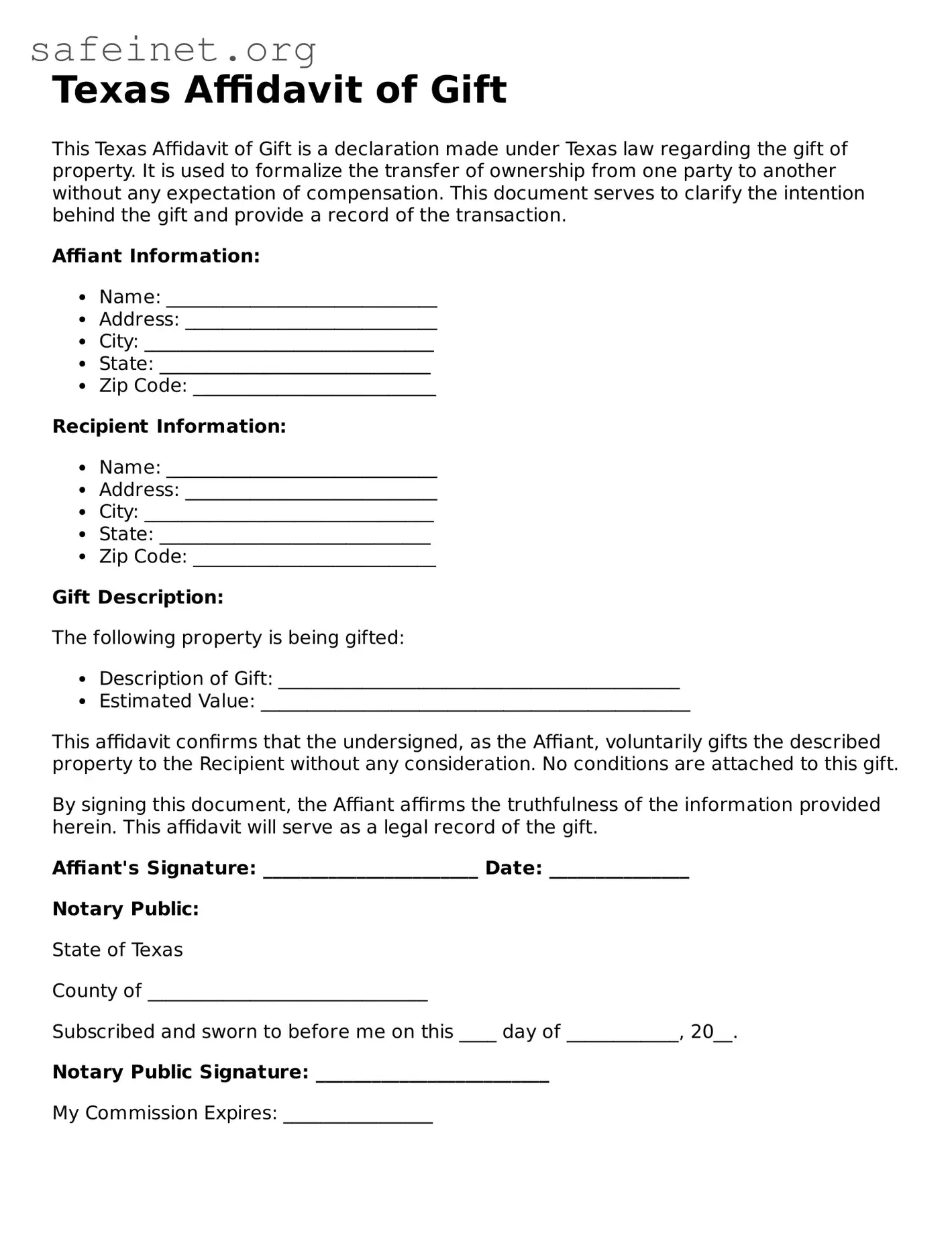Texas Affidavit of Gift
This Texas Affidavit of Gift is a declaration made under Texas law regarding the gift of property. It is used to formalize the transfer of ownership from one party to another without any expectation of compensation. This document serves to clarify the intention behind the gift and provide a record of the transaction.
Affiant Information:
- Name: _____________________________
- Address: ___________________________
- City: _______________________________
- State: _____________________________
- Zip Code: __________________________
Recipient Information:
- Name: _____________________________
- Address: ___________________________
- City: _______________________________
- State: _____________________________
- Zip Code: __________________________
Gift Description:
The following property is being gifted:
- Description of Gift: ___________________________________________
- Estimated Value: ______________________________________________
This affidavit confirms that the undersigned, as the Affiant, voluntarily gifts the described property to the Recipient without any consideration. No conditions are attached to this gift.
By signing this document, the Affiant affirms the truthfulness of the information provided herein. This affidavit will serve as a legal record of the gift.
Affiant's Signature: _______________________ Date: _______________
Notary Public:
State of Texas
County of ______________________________
Subscribed and sworn to before me on this ____ day of ____________, 20__.
Notary Public Signature: _________________________
My Commission Expires: ________________
